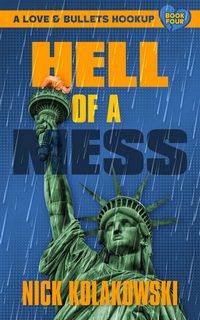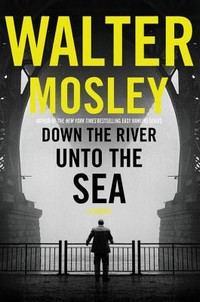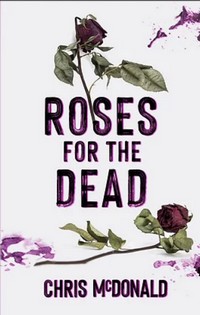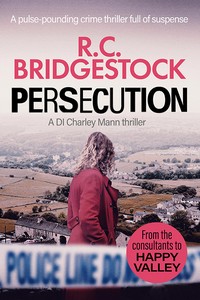When I started to write this, I thought it’d be a 5 +/- paragraph post, but apparently I can’t shut up about books in a Parker series (and I did try).
 Fallout
Fallout
by Mike Lupica
DETAILS: Series: Jesse Stone, #21 Publisher: G.P. Putnam's Sons Publication Date: September 5, 2022 Format: Hardcover Length: 353 pg. Read Date: September 7-8, 2022

“I guess drinking was his way of dealing with it tonight.”
“That was always my first option,” Jesse said. “And second. And third. But no matter how many times I tried, it never seemed to work.”
There was a pause at her end.
“He didn’t get into any fights, did he?”
“Just with himself,” Jesse said. “Spoiler alert? He lost.”
What’s Fallout About?
There are two murders for the Paradise Police Department to focus on in this book—and both have a lot of personal resonance.
The first is the suspicious death of Suit’s nephew. He was a senior in High School and a hot college baseball prospect—naturally, a great athlete—and had been getting better because of Jesse’s mentoring. Suit thought of Jack as a son more than a nephew and he’s devastated by this. It’s unclear if he died after a drunken fight at a party, or if he’d been driven by inner demons to end his own life. No one wants to believe the latter—but they can’t rule it out. A very not-subtle cone of silence around the team is being enforced—as that was pretty much all of Jack’s life, that means the investigation isn’t getting very far.
Some time ago, a former Paradise Police Chief moved back to town and befriended Jesse. The two regularly had dinner together, and one of the first things we see is a meal between Jessee and Charlie Farrell. The woman that Charlie’s been seeing was recently swindled out of a few thousand dollars and now it looks like scammers have targeted Charlie. He’s been retired for decades, but still has the instincts and reflexes to try to track them down himself rather than turn things over to Jesse’s crew. He must’ve been on the right track because he was killed. This shakes (an already shaken) Jesse, who sets his sights on this case so much that he turns Jack’s death primarily over to Molly. He was Chief before any of the officers we know joined the force (as far as I can tell), but it’s still about “one of their own.”
Jesse’s Battle with Alcohol
I’m not crazy about Lupica’s way of dealing with Jesse’s alcoholism compared to Coleman’s—but it’s better than Parker or Brandman did. But I really liked Jesse’s ruminations about people being able to stop drinking while the bottle still had something left, or when the option to order another glass was available. Actually, all of the material about his drinking in this book was good—better than he’s given us so far. Hopefully, the trend continues.
Miscellaneous Bullet Points
I don’t have time/inclination to expand these beyond brief paragraphs—but I felt compelled to mention a few things.
 Okay, the over-use/over-reliance on Crow, basically making him Jesse’s Hawk, bugs me. It also doesn’t do that any favors for the character of Crow or Jesse—and really doesn’t help Molly’s character in any conceivable way (although Lupica may have a long game there). Parker (inadvertently?) tamed Hawk by using him too much—and was well on the way to doing that with Bobby Horse and Chollo, too. And now Lupica’s doing that with Crow. Use him less (far less) and he retains his mystery, his edge, and his ability to do the things that Jesse won’t do.
Okay, the over-use/over-reliance on Crow, basically making him Jesse’s Hawk, bugs me. It also doesn’t do that any favors for the character of Crow or Jesse—and really doesn’t help Molly’s character in any conceivable way (although Lupica may have a long game there). Parker (inadvertently?) tamed Hawk by using him too much—and was well on the way to doing that with Bobby Horse and Chollo, too. And now Lupica’s doing that with Crow. Use him less (far less) and he retains his mystery, his edge, and his ability to do the things that Jesse won’t do.
 This isn’t evaluative, per se, I guess I’d file it as a general musing—it felt to me like this book was (for lack of a better term) swear-ier than I’m used to. Parker and the other authors in the Spenser-verse have never been reluctant to use a four-letter word when the situation called for it, by any means. It seemed like a noticeable uptick in those words. I’m not saying that Lupica’s turned into Kevin Smith or anything, it just gave everything a slightly different feel. I wonder if that’ll continue, if it was just a blip, or if I’m imagining things.
This isn’t evaluative, per se, I guess I’d file it as a general musing—it felt to me like this book was (for lack of a better term) swear-ier than I’m used to. Parker and the other authors in the Spenser-verse have never been reluctant to use a four-letter word when the situation called for it, by any means. It seemed like a noticeable uptick in those words. I’m not saying that Lupica’s turned into Kevin Smith or anything, it just gave everything a slightly different feel. I wonder if that’ll continue, if it was just a blip, or if I’m imagining things.
 It really feels like Lupica is trying to write off Jesse’s son, Cole. Had Coleman continued with the series, I’m curious about how he’d have handled the character. I’ve had so many questions about his introduction in the first place, and now it feels like Lupica’s trying to pull a Chuck Cunningham with him—sending him to law school in London and taking him out of Jesse’s life. He actually thinks, “The kid sounded happy. Leave him alone.”
It really feels like Lupica is trying to write off Jesse’s son, Cole. Had Coleman continued with the series, I’m curious about how he’d have handled the character. I’ve had so many questions about his introduction in the first place, and now it feels like Lupica’s trying to pull a Chuck Cunningham with him—sending him to law school in London and taking him out of Jesse’s life. He actually thinks, “The kid sounded happy. Leave him alone.”
 So Molly came clean with her husband about her fling with Crow several years ago. Now her marriage is all but over. No one has given us enough time with Molly’s husband over the previous 20 books for us to get that invested in the marriage—so putting it on the rocks doesn’t do much for the character either. I really don’t care either way, except that it feels like Molly’s character is drifting and becoming a different person. But that happens to all of us, so I can’t complain on principle, just…
So Molly came clean with her husband about her fling with Crow several years ago. Now her marriage is all but over. No one has given us enough time with Molly’s husband over the previous 20 books for us to get that invested in the marriage—so putting it on the rocks doesn’t do much for the character either. I really don’t care either way, except that it feels like Molly’s character is drifting and becoming a different person. But that happens to all of us, so I can’t complain on principle, just…
 Yeah, Parker created his three series in a way to allow the characters to intersect—but other than the Jesse/Sunny love story, and the Sunny/Susan therapy relationship, the primary characters didn’t intermingle too much. I’m not sure if the current approach of bringing them all together so much is the right way to deal with them. I’m not sure it’s not, either.
Yeah, Parker created his three series in a way to allow the characters to intersect—but other than the Jesse/Sunny love story, and the Sunny/Susan therapy relationship, the primary characters didn’t intermingle too much. I’m not sure if the current approach of bringing them all together so much is the right way to deal with them. I’m not sure it’s not, either.
 Building from that—if you’re going to bring these worlds together so much, and if you’re going to introduce and kill off a police chief that coincidentally(??) shares the last name of a frequently used supporting character who is also a cop? Someone had better say something. If only so that readers stop thinking about it. In a Spenser-verse book, if someone talks about “Farrell,” I reflexively think, “Lee.” I can’t imagine I’m alone there—I just don’t get that character name choice. I bumped on it every time it was mentioned (and, as the central death in one of the two major storylines, it came up a lot).
Building from that—if you’re going to bring these worlds together so much, and if you’re going to introduce and kill off a police chief that coincidentally(??) shares the last name of a frequently used supporting character who is also a cop? Someone had better say something. If only so that readers stop thinking about it. In a Spenser-verse book, if someone talks about “Farrell,” I reflexively think, “Lee.” I can’t imagine I’m alone there—I just don’t get that character name choice. I bumped on it every time it was mentioned (and, as the central death in one of the two major storylines, it came up a lot).
So, what did I think about Fallout?
This was entertaining and occasionally clever. I don’t know that I felt the emotional impact of either murder—I felt for Suit, but I’m not sure I cared too much about it. Maybe if we’d been able to focus on what Suit was going through while he was doing the investigation—keep it a Jesse and Suit thing with some backup from Molly. In the end, it became primarily a Molly and Jesse thing with Suit in the background.
I don’t know if Lupica’s capable of delivering a great Jesse Stone novel, instead, I think we’re going to get a streak of pretty good—and consistently so—novels (well, he’s probably capable, but I don’t get the impression that it’s his goal). That’s good enough for me, I might want something more, but consistently good and entertaining will sustain my interest.
I’m not sure if this is the place to jump onto the series—but it’s not necessarily a bad place. It’s the 21st in the series, but you don’t need the knowledge that comes from the previous twenty. It might help, but not that much, you’ll not miss much at all.
A good time will be had by those who take a dip into these waters.

This post contains an affiliate link. If you purchase from it, I will get a small commission at no additional cost to you. As always, the opinions expressed are my own.
![]()




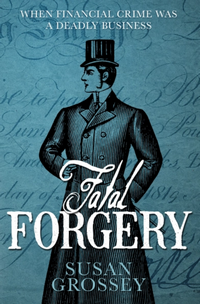
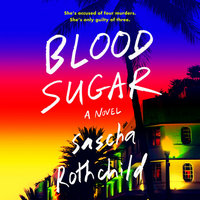


 Grab a book, any book.
Grab a book, any book.